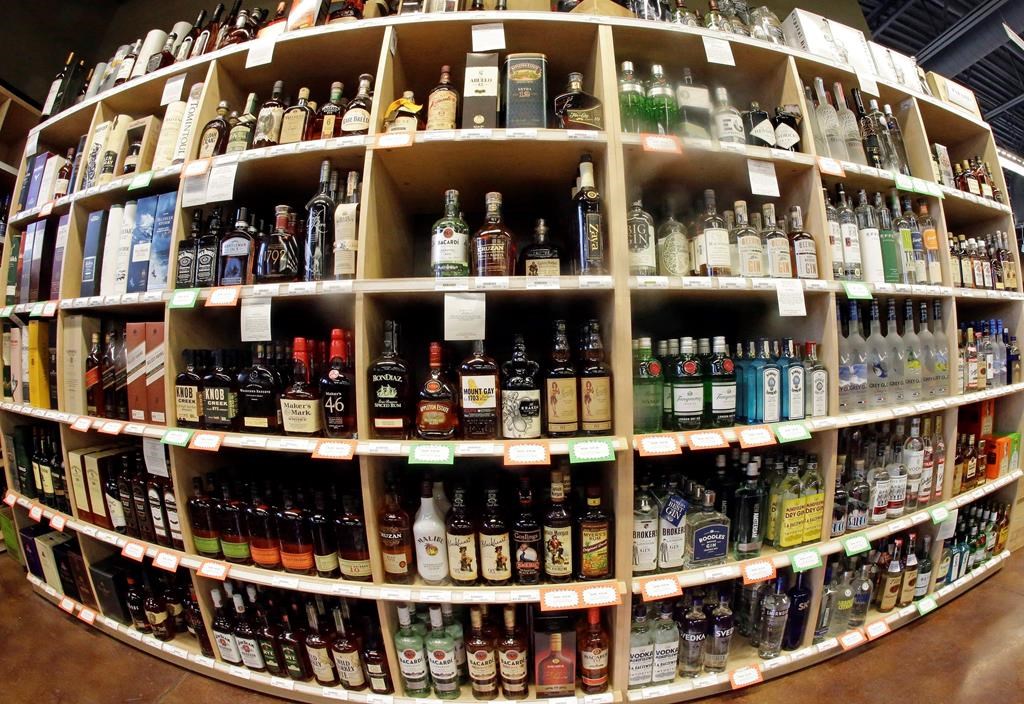Alcohol is no longer available for purchase in the northern community of La Loche after health officials say too many people are spreading the novel coronavirus by drinking together.

“The reason why we have a lot of spread is people drinking together, sharing smokes, driving together,” said Dr. Rim Zayed, medical health officer with the Athabasca Health Authority, in a statement to the community on Thursday.
“It is mostly young people who know they have low risk factors but it is very harmful to others who are vulnerable. Some are getting admitted to hospitals and are away from their families for a long time.”
The province is stopping all beverage alcohol related sales, distribution and consumption sites following the request of La Loche Mayor Robert St. Pierre.
On Thursday, St. Pierre notified the Minister of Government Relations, Lori Carr, that La Loche council had passed a recommendation banning alcohol.
After further consultation with the community and Indigenous leaders, the government says it decided to close all liquor retailers as recommended.
As of Saturday, the SLGA retail store and the private off-sale in La Loche will be closed for two weeks. Liquor stores in other parts of the province are considered an essential service and remain open.
The Ministry of Health and the Saskatchewan Health Authority says they will help those facing withdrawal symptoms including an alcohol addictions program within the community.
Addiction workers in the area are asking people to call 811 if they are having withdrawal symptoms, or 911 if they start to hear things that are not there, which is considered a fatal symptom of alcohol withdrawal.
The province’s COVID-19 epicentre remains in Saskatchewan’s far north, where 150 of its 184 cases remain active.

Get weekly health news
On Friday, the Saskatchewan’s chief medical health officer Dr. Saqib Shahab said most cases in the north are among youth and younger adults.
This is being reflected in the provincial numbers where cases among the province’s younger demographics are increasing steeply.
As of Saturday, those under the age of 40 make up almost 50 per cent of Saskatchewan’s COVID-19 cases.
Those who are 19-years-old or younger make up 13 per cent of the 553 cases in the province, while those between the ages of 20 and 35 make up 35 per cent of total cases.
On Friday, Premier Scott Moe pleaded with youth in the north to take the novel coronavirus seriously.
“I would ask the youth in La Loche to take their personal responsibility very, very seriously,” Moe said. “And I would ask them to pay attention to how to properly physical distance, how to protect not only themselves, but to protect the elders and their family, the elders in their community that I know they love and cherish so very much.”
Getting youth to understand the risks associated with COVID-19 has been a provincial issue across many communities.
A large number of cases have been prevalent in those under the age of 44 for months.
In early April, the province launched targeted advertising campaigns for youth through Snapchat, Twitter, Instagram and Facebook to educate them on the novel coronavirus.
“Especially around the ages of 12 to 29, we have messaging around preventative measures, like hand-washing and social distancing,” Shahab said on April 11.
“It emphasizes that all of us need to take care, remain healthy, which protects us and those who are most vulnerable.”
The premier reiterated on Friday that this virus is non-selective.
“This is a reminder to all of us in this province that if we let our guard down how quickly this virus will spread in our communities no matter if you’re in La Loche, Estevan or Esterhazy,” Moe said. “It’s indiscriminate.”
Questions about COVID-19? Here are some things you need to know:
Health officials caution against all international travel. Returning travellers are legally obligated to self-isolate for 14 days, beginning March 26, in case they develop symptoms and to prevent spreading the virus to others. Some provinces and territories have also implemented additional recommendations or enforcement measures to ensure those returning to the area self-isolate.
Symptoms can include fever, cough and difficulty breathing — very similar to a cold or flu. Some people can develop a more severe illness. People most at risk of this include older adults and people with severe chronic medical conditions like heart, lung or kidney disease. If you develop symptoms, contact public health authorities.
To prevent the virus from spreading, experts recommend frequent handwashing and coughing into your sleeve. They also recommend minimizing contact with others, staying home as much as possible and maintaining a distance of two metres from other people if you go out.
For full COVID-19 coverage from Global News, click here.














Comments
Want to discuss? Please read our Commenting Policy first.